Do you have to Say Check in Chess? What Happens if You Forget?
When a player’s king is attacked, a check is performed. If you have played games, you have most likely noticed players calling check when it occurs. But does chess demand that you call to check when it occurs? Or Do you have to Say Check in Chess? If yes, then stick to this article till the end.
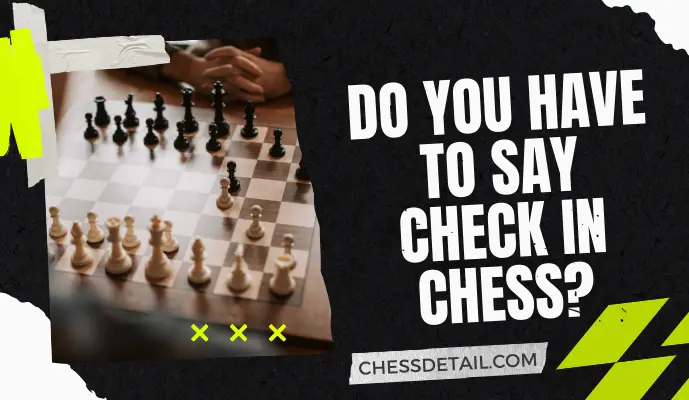
Do you have to Say Check in Chess?
“Checking is not always required in chess. Since players at that level notice checks easily, most professional chess players do not say check. As well as disrupting the opponent’s concentration during play, calling out a check might also make them lose concentration.”
Generally, chess rules dictate that you may not make any sounds that might disrupt your opponent. Thus, you do not need to say “check.”. Let’s ask the question: What happens if you fail to say “check” in chess or if you forget to say “check?”
The act of saying check in chess is not mandatory, so nothing happens if you forget to say check or you do not say check. You should point out this before moving your king in check; however if you are playing with beginners. It is the opponent’s fault if they overlook a check delivered to them and make an illegal move afterward in a tournament game.
Many amusing comments are exchanged among the players during casual chess games. Thus, it does not matter if you say check or not. On the other hand, you should try to avoid saying it during official chess games.
A chess player can only offer a draw, resign or announce their illegal move in a tournament chess match if either they or their opponent made a mistake. Other than that, nothing needs to be said. Now, I will go over this in greater detail, like what a check is, how they differ, how they can be said during play, and the FIDE rule.
Hopefully, you will find that this article clarifies a lot of your misconceptions. If you want to learn more about all these, keep reading.
What Is A Check?
Check implies that your king is in danger of being captured in your opponent’s next move. In other words, you are responsible for saving your king whenever you are in check. Often, newcomers to chess will move other pieces without releasing the check they are in despite being in check. Even after the move, their king is still under control. However, that is totally erroneous. In truth, a player has three options when responding to a check.
- Getting out of check by moving the king.
- With the king, destroy the attacking piece in chess.
- Between the attacking piece and the king, some other pieces are put.
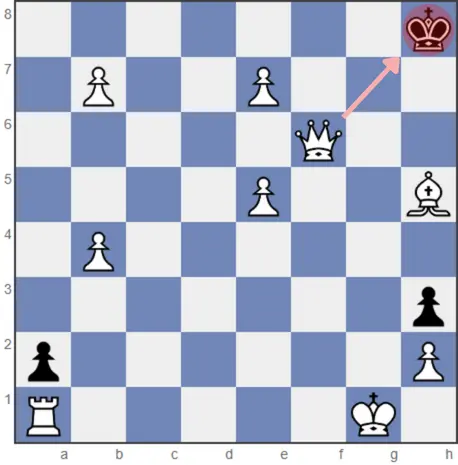
What is Checkmate?
The checkmate stands for the king being attacked and without any way to escape. After the checkmate, the game is over. Aside from the side that wins the game, the side that loses the game is the side that gets the checkmate. Chess players strive to achieve a checkmate or sometimes called a mate, in order to win the game.
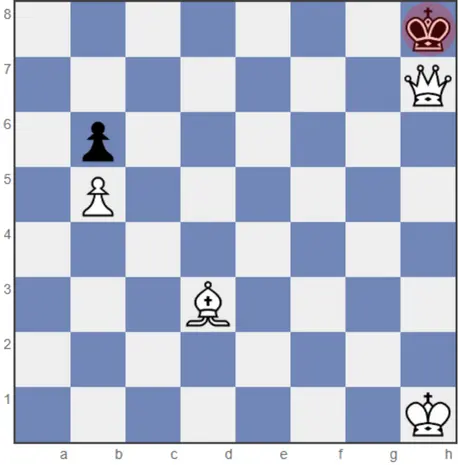
Difference Between Check and Checkmate
There is still a chance for the King to escape being attacked when the Check is made. If the King is checkmated, he finds that he has no legal way of defending himself from the attack, and the match is over.
Now that you understand the concept of Check, Checkmate and their differences. In this post, we will discuss a question related to chess – can you win without saying Check? Make sure to read all of them to clear your confusion about “Do you have to Say Check in Chess”.
Why Do You Say Check In Chess?
“During the early stages of learning chess, many people say check very often. Especially to your opponent, it might seem like a good idea to speak out loud, especially if the other side hasn’t noticed.”
Other games have rules that require you to say a particular phrase after you win a game to win. This is a reason why you often hear check in chess. Your opponent is constantly under threat in this game, and it almost seems like it will end the game. Hence, it is logical to assume that it is mandatory.
Casual players are the only ones who get to experience this. Players at the club level, even those who are beginners, know why they should not call out “check.”. While it is not harmful, it won’t bring you any benefits other than maybe an overbearing smile.
Do Players Often Say Check?
It’s not illegal in chess to decide not to say “check” as such, and the player can choose to do so at their discretion. During casual contests, opponents sometimes warn their opponents about their King. When playing in tournaments or any other high-stakes event, however, players rarely say “check.”
The game can be won on the next move if the opponent does not recognize it. Additionally, if the opposition knows, they will try to get out of Check. The game will be a lot closer to a draw if they spend more time on their turn. There is a much higher likelihood that a player will not call out “check” if something is “on the line” than if the situation was more relaxed.
The Rules Of The Game When The King Is In Check
In case of the threat of king check, the player with the threatened King can only make a move that removes their King from Check. The King should never be moved through any position that results in a Check, even if it does not result in a Check in the final position of a castling if there is no chance for it to be in Check at its end.
A player may forfeit the game if they leave their King in Check and instead move another piece during speed chess. Though not typical, you should have been informed before the game began of this rather substantial amendment to standard rules.
How To Prevent Check In Chess?
“The majority of players are uncomfortable when they are being checked. The other player seems to be doing all the talking. This is not an excuse for avoiding being checked. Some checks are harmless, and some improve the other player’s positioning.”
Although you do not want to force checks, you still want to avoid making them that limit your play or weaken your position. Your strategy depends on how you evaluate the situation prior to moving. Whenever you make a move, it is important to ask yourself – Can my opponent put me in a threatening position with this move? It is more common than not that a check will limit you to only a few or even one possible move. In this case, you are said to have only one move. It is important to prevent these checks since they often mark the beginning of an opponent’s offensive.
You should be extremely cautious if your move allows your opponent to put you in a position where you are severely restricted by the Check. You should even consider finding a better move. Our goal is to be the ones who set the rules of the game.
Three Types Of Check To Look Out
There are three alternative ways to put the King in Check, and they all count. In addition to a check that makes a piece move directly to attack the King, there is also a check that makes a piece move to attack a pawn directly:
A Discovered Check
By doing this, you open up a line of attack between the King of your opponent and a piece in the same row or column as what you moved. In the end, the Check is discovered between the King and another piece that you own rather than between the piece you moved and the King.
A Double Check
Whenever you move a piece, not only does it place the King in Check but also reveals a “discovered check” that you made by moving that piece. For the opponent to stay in the game, he or she must avoid both types of checks in the next move.
A Cross Check
Besides blocking your Check, your opponent also holds your King in Check in return. You are, theoretically, capable of not only being checked like that but also of being checked mate. The fact that this is not called a “cross checkmate” is most likely due to its low chance of ever occurring in play.
Any time a player’s King is in Check – he or she must move out of Check on his or her next move, no matter what kind of Check it is.
Also read: Can you Castle Out of Check
Problems After Saying Check or Checkmate to the Opponents
Whether you want to play chess for fun or as a serious game, you can make it what you want. When you say check or checkmate to your opponent, it would be best to be aware of some of the problems that can arise depending on where you are or who you are playing with.
- Your opponent may lose concentration if you announce a check.
- Chess players may be disturbed by an announcement of a check or Checkmate.
- Your opponent may consider your announcement of a check or checkmate rude.
If you keep saying ‘check’ during a game, it could disrupt your opponent’s concentration on the game, especially if it’s a very serious game. As for me, I don’t mind it, but there are those who believe it disturbs their strategic thinking.
Chess players should refrain from announcing checks or checkmates during tournaments. Games are generally quiet, and announcing checks or checkmates makes you look like you are showing off. As much as possible, do not announce “check” or “checkmate” in a game if you will one day be playing in chess tournaments.
Checkmating or announcing the Checkmate of your opponent can be considered rude, and here is the issue I think should be addressed. Some chess players find it offensive if you repeatedly say “check” during a game, especially high-rated players. Their view is that it is rude since they know when their King is under Check and whether they are checkmated or not.
You will often find that high-rated players or Grandmasters will resign even if their King is not checked, even when playing at the Grandmaster level. They were respectful of their opponent’s excellent play because they understood there was no chance to win.
Do You Disturb Your Opponent When You Say Check?
Chess players are highly focused on their game when playing. The player constantly considers all the next moves his opponent might make before making each move. Inside the player, there is self-conversation such as Do I make the right decision? Will they attack me? How can I improve this piece? And so on.
Therefore, there are many thoughts going on. The players might seem silent to the spectators. But they have a lot on their minds. This has happened to me personally in many of my games, and it might have happened to you as well, right? Imagination tells me what it must feel like when you and your opponent are playing back and forth with such intense concentration when you suddenly say, ‘CHECK!’
What a rude thing to say, wouldn’t it? All the thoughts would be disconnected from each other. Moreover, chess is a mind game, so you’ll greatly upset your opponent if you say something like this. To avoid appearing an amateur, avoid giving the impression that you are a chess player.
Illegal move after Check
You might miss it if your opponent doesn’t say check if you are used to hearing them say it every time. Your move is likely to avoid blocking or moving your King. It would happen once in a lifetime, maybe in games at the highest level. Regardless of warning or not, no top-level chess player gets into a position where the opponent could check, let alone miss a check that does occur.
An illegal move can lead to a forfeit in an intermediate game or in a chess tournament. Exceptions may be made to standard rules by tournaments, clubs, or local rules. Do not rely on these exceptions. Adjudicators’ decisions are final. As a player at this level, if your opponent’s King is in Check, you should inform them that he did not move his queen or block the queen. The decision is yours as a couple. Usually, the player makes an illegal move and is pointed out and allowed to go, but he or she can replace the pieces and try again.
Do you win if you don’t say Checkmate?
The fact that you did not state that you placed your opponent in Checkmate and eliminated them does not mean you lost the game. It does not state where you have to say Checkmate, so they won’t be able to find it on the FIDE rules. However, if you grab your phone, find the FIDE rules and ask them to locate it, they won’t find it there. It will be quicker to show them this article if you BOOKMARK it.
Is It Possible To Say Anything During Chess?
As per the FIDE laws of chess, all the standard rules of chess are followed. Chess players are governed by Article 11 of the FIDE laws. Therefore, according to the fifth paragraph.
“Distracting or annoying is not possible under any circumstances. Any claims, draw offers, or noises that might disturb your opponent are against the rules.”
So, you can clearly see that making a sound or making noise in your opponent’s vicinity is strictly prohibited. Do you have to remain silent then? No, you have the right to make reasonable claims. We do not tolerate unreasonable claims. Whenever Checkmate occurs, it can be seen clearly. Especially in professional tournaments, announcing it during the game is a waste of time and is unreasonable.
In addition, did you know that the hesitation to announce a check or Checkmate during the game is one of the more common concerns that beginners have? It is not unusual for this to happen. In summary, I can say that you should always follow the guidelines for your claim or request and whisper so that you do not disturb your opponent. Additionally, you should only say things that are necessary.
How To Avoid Checkmate In Chess?
A checkmate should be avoided at all costs. But how can we avoid one? If you want to avoid checking your opponent, keep playing your best game. Checkmating is one of the main objectives of chess.
How would you explain this in plain terms? Playing well is an obvious statement. Here are some things you need to bear in mind to keep your business running smoothly.
- Moves based on the opening’s fundamentals should be the only ones you play.
- Remember that your opponent has plans of their own before you make any move. In this way, try to think about the best counter-move your opponent might make.
- If you want to avoid sudden Checkmate, you should watch out for forcing moves. If you make a certain move, you should alert yourself to any possible checks your opponent might throw at you and threats they might pose to your major pieces.
Following these three tips will increase your chance of avoiding Checkmate. Always consider your opponent’s next moves before making your own. As a chess player, this is much more effective than setting up traps that depend on your opponent’s mistakes to work.
Do you Say ´Check´ on the Queen?
Chess doesn’t use the term ‘check’ when referring to the queen, but once upon a time, the term ‘garde’ was used when the queen was directly attacked. This is a term that is rarely used nowadays and almost never heard. Chess does not contain or practice the expression ‘queen-check.’
Wrapping Up
In a nutshell, don’t say Check when you play chess in a professional setting or for any other kind of competition. Playing casually with your family or friends is a choice that is entirely up to you. There you go! Hopefully, this article helped clear up any misconceptions about “Do you have to Say Check in Chess” you may have. Please share it with others if you find it helpful.
Furthermore, you can ask in the comment section if you have any questions about this. I love to help you with your silly questions all the time. HEHE, Don’t Mind!

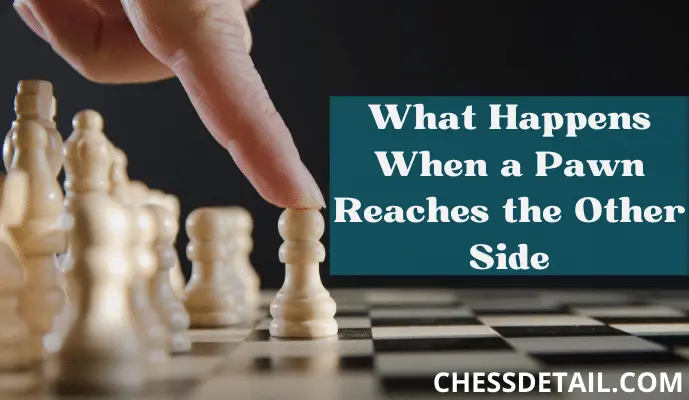
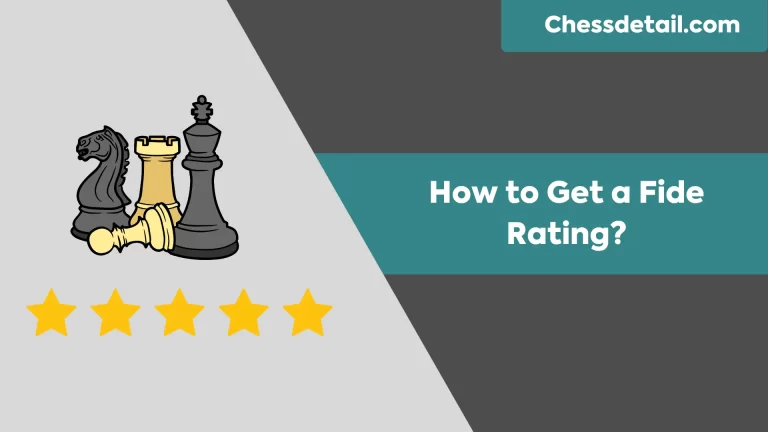
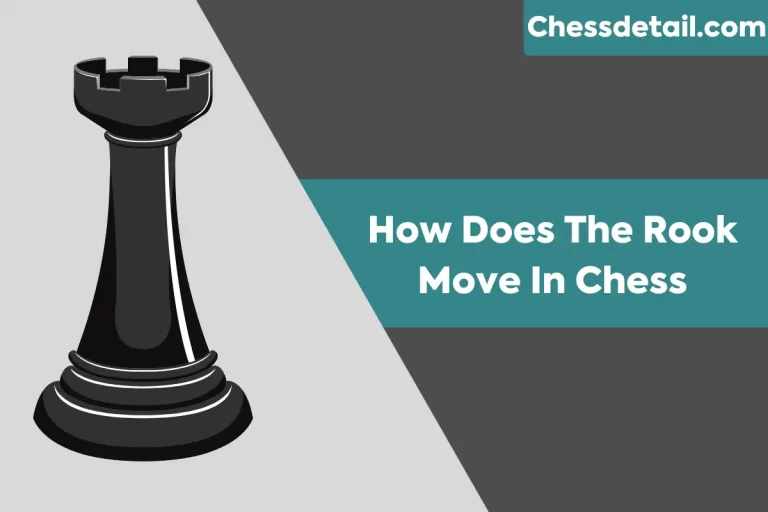
![7 Chess Tournament Rules [Game Format and Etiquettes]](https://chessdetail.com/wp-content/uploads/2022/06/CHESS-TOURNAMENT-RULES.webp)
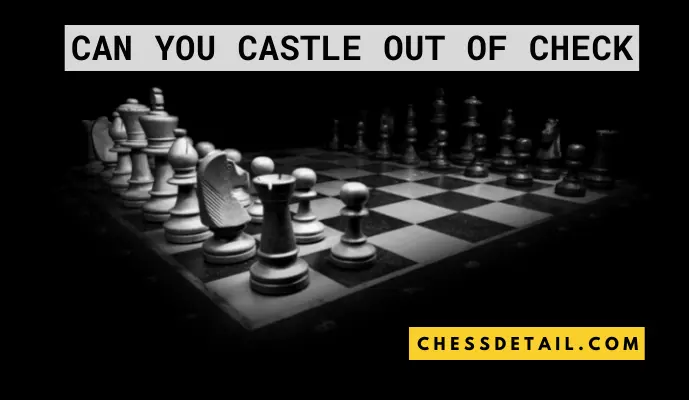
![How Does The Pawn Move In Chess [Everything Explained]](https://chessdetail.com/wp-content/uploads/2023/06/How-does-the-pawn-move-in-chess-768x512.webp)